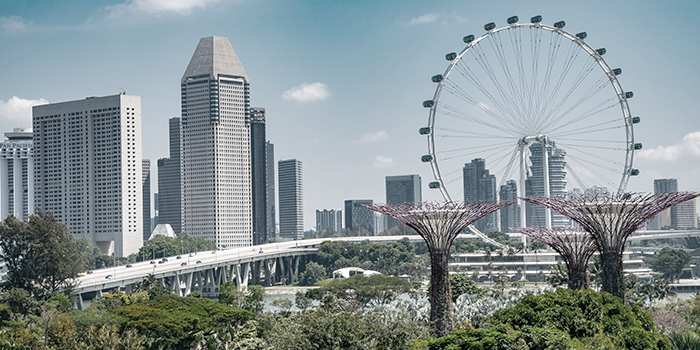Trust Technical: Philippine Succession Planning using Singapore Qualifying Foreign Trusts

Singapore Trusts continue to grow in popularity for Asia-based families and we are delighted that Andrew Galway, Managing Director of Sovereign’s Singapore office, is compiling a series of articles to examine some of the key structuring considerations for clients who are looking to take advantage of these highly effective vehicles.
This month’s case study looks at the use of Singapore QFTs for succession planning issues faced by clients who are resident in the Philippines. In particular the issue of Donor’s Tax, which is imposed on the gratuitous transfer of property between two or more persons who are living at the time of the transfer.
What is a Qualifying Foreign Trust in Singapore?
The tax treatment of Singapore trusts is dependent on the residency of the trust. Where there is residency in Singapore, and an exemption does not apply, income derived by trusts will be either taxed at the trustee level or in the hands of the beneficiaries.
However, Singapore Qualifying Foreign Trusts (QFTs) are exempt from Singapore tax on certain ‘specified income’ if neither the settlor nor beneficiaries of the trust are a citizen or resident of Singapore, or a Singapore resident company, and provided that the trust is administered by a licensed Singapore trust company. Specified income includes income from the following sources that is received in Singapore:
- Interest and dividends derived from any designated investments outside Singapore
- Rents, royalties, premiums, and any other profits arising from property outside Singapore
- Gains or profits derived from sale of any designated investments outside Singapore
- Distributions from foreign unit trusts derived from outside Singapore
This tax exemption further applies to distributions to beneficiaries and any underlying company of the trust that qualifies as an ‘eligible holding company’. An eligible holding company is a company incorporated outside Singapore, that is wholly owned by the trustee and formed specifically to hold the assets of the QFT, and whose operations consist solely of trading or making investments for the purpose of the QFT.
Additional advantages of Singapore QFTs
There is no registration requirement for Singapore QFTs and no requirement to publicly disclose the identities of the settlor or the beneficiaries. A Singapore trust can be revocable or irrevocable, discretionary or fixed interest, depending on the objectives to be achieved.
Under Singapore law, trusts are valid for a maximum period of 100 years and subject to certain conditions, a trust can continue to be a QFT even where a settlor or beneficiary subsequently becomes a citizen or resident of Singapore.
In addition to tax neutrality for foreign settlors and beneficiaries within its domestic tax law, Singapore also has an extensive network of double tax treaties with over 70 countries across the world, which can create tax and succession planning opportunities for clients with substantial international interests.
Singapore QFT for Philippines’ Succession Planning
For example, ‘Client A’ is a UK national who is currently tax resident in the Philippines. He has received funds in the Philippines in the form of dividends from a Philippine company on which dividend taxes have been paid in the Philippines. He now wishes to transfer these funds into a Singapore QFT. Distributions from the trust are to be made to a beneficiary who is neither a resident or a citizen of either the Philippines or Singapore.
Under the Tax Code in the Philippines, Donor’s Tax is levied, assessed, collected and paid upon the transfer by any person, resident or non-resident, of the property by gift. The tax will apply whether the transfer is in trust or otherwise, whether the gift is direct or indirect, and whether the property is real or personal, tangible or intangible.
Tax treatment in the Philippines
Transfers to an irrevocable Singapore QFT are likely to be subject to Donor’s Tax because the settlor will essentially be transferring all ownership of the assets to the trust. If the trust is revocable, however, Donor’s Tax liability will not be incurred until such time as the funds are transferred to the beneficiary or the trust becomes irrevocable.
The assets invested in the trust are the contributed capital, so any distributions from contributed capital are simply distributions of the original investment, and, therefore, not taxable. Generally, tax must be paid on taxable income. If the trust retains income, then the trust must pay taxes on it. If the income is distributed, then the beneficiaries pay tax, and the trust is permitted to deduct it.
Tax treatment in Singapore
In Singapore, however, the tax treatment of trusts in Singapore is dependent on the residency of the trust. Where there is residency in Singapore, and an exemption does not apply, income derived by trusts will be either taxed at the trustee level or in the hands of the beneficiaries. However, distributions to beneficiaries of Qualifying Foreign Trusts (QFTs) are exempted from Singapore taxes.
In this way transferring the dividends to a revocable Singapore QFT should enable Client A to avoid any liability to Donor’s Tax in the Philippines, while also allowing that any distributions from the Singapore QFT to a beneficiary who is neither a resident or a citizen of either the Philippines or Singapore will not be liable to tax in either the Philippines or Singapore.
For further information please contact Andrew Galway by email below or by phone on +65 6222 3209
